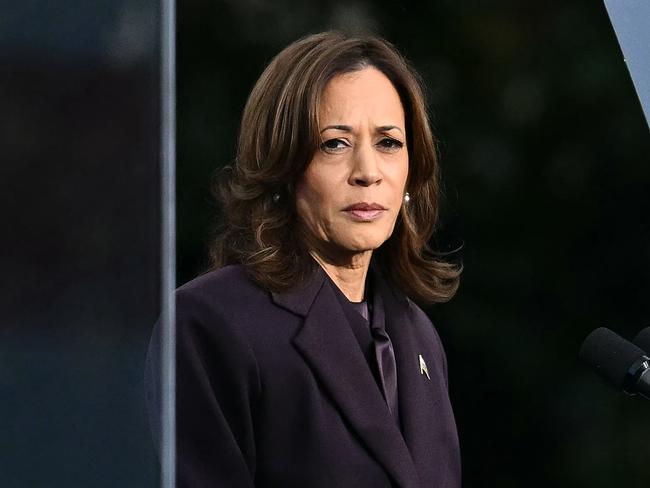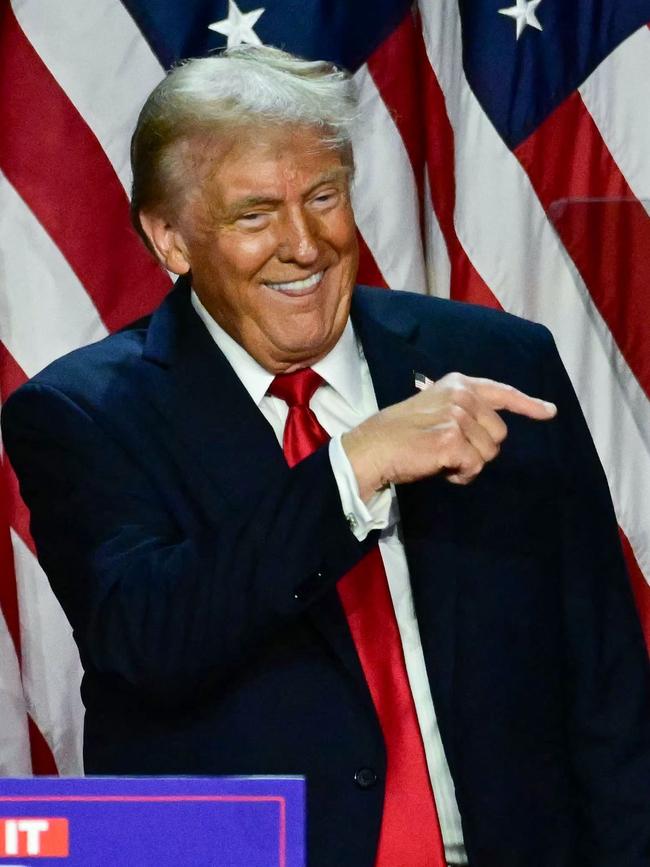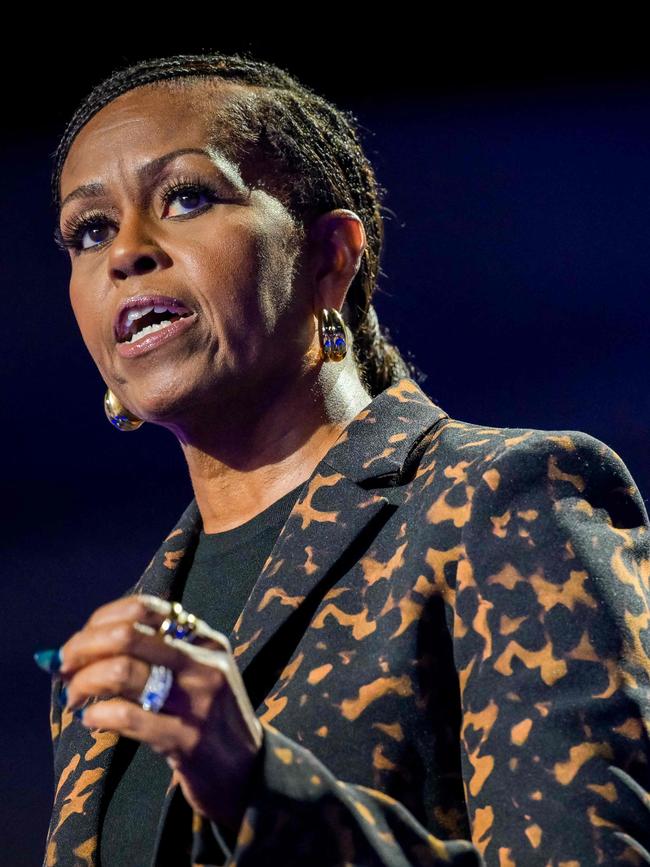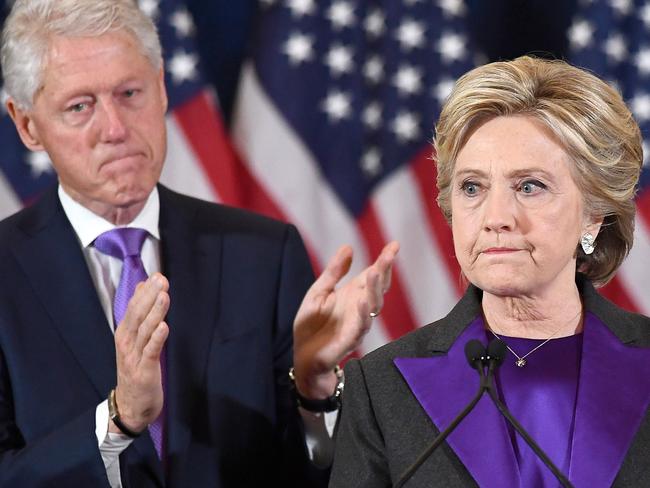‘Not the right woman’: Election result America isn’t ‘ready’ for
Donald Trump’s landslide victory over Kamala Harris has exposed a big question that the US still can’t answer.
World
Don't miss out on the headlines from World. Followed categories will be added to My News.
For the second time in less than a decade, a female presidential candidate has failed to break the highest glass ceiling in US politics.
Kamala Harris has conceded defeat to Donald Trump, who will become America’s 47th President after winning (at the time of writing) 295 votes in the Electoral College.
Ms Harris, the first woman (and woman of colour, at that) to be elected Vice President, is also the second to be trounced by the Republican, following his landslide victory over Hillary Clinton in 2016.
Of the 193 countries that make up the United Nations, just 7 per cent have a woman as their head of government. Only 30 per cent of them have ever had a woman leader.
That Mr Trump was again the more desirable candidate, despite having made controversial comments about women in the past, begs the question of whether the US will ever be “ready” for a female Commander in Chief.
And, if or when it is, what kind of woman voters would find palatable enough to break the 248-year male stronghold on the presidency.

Unlike Ms Clinton, gender was not a core tenant of Ms Harris’s truncated campaign. Instead, she repeatedly emphasised that her focus was on policy and uniting all Americans.
“Well, I’m clearly a woman,” Ms Harris said in an interview with NBC last month.
“The point that most people really care about is can you do the job and do you have a plan to actually focus on them.”
Yet she was continually hindered by the same stereotypes that have plagued female leadership candidates across the world for decades.
“When gendered stereotypes and sexist narratives persist in media coverage, voters are more likely to reflect these as well,” University of Southampton visiting fellow for politics and international relations, Dr Caroline Leicht, wrote for The Conversation in August.
“Despite a decrease in sexism against women politicians around the world, the US presidency remains a role which many voters associate with stereotypically ‘male’ characteristics such as power, strength and assertiveness.
“This makes it more likely that women candidates will face gendered coverage and attacks when aspiring to this office.”
Case in point: inarguably no label stuck to Ms Harris more than the JD Vance-coined “childless cat lady” one.
“For women candidates,” Dr Leicht explained, “a significant challenge lies in the stereotypical framing that their opponents use, and how to respond.”
They’re also held to a higher standard, as Michelle Obama pointed out in a rousing speech at an event for Ms Harris in Kalamazoo, Michigan, last month.
“We expect her to be intelligent and articulate, to have a clear set of policies, to never show too much anger, to prove time and time again that she belongs,” the former First Lady said.
“But for Trump, we expect nothing at all, no understanding of policy, no ability to put together a coherent argument, no honesty, no decency, no morals.
“So I hope you’ll forgive me if I’m a little angry that we are indifferent to his erratic behaviour, his obvious mental decline, his history as a convicted felon, a known slumlord, a predator found liable for sexual abuse.
“All of this while we pick apart Kamala’s answers from interviews that he doesn’t even have the courage to do.”


One of the biggest questions following Ms Clinton’s loss to Mr Trump was whether, for any future female presidential hopeful to succeed, she would need to be white and Republican.
Since 1979, Britain has seen three female Prime Ministers – Margaret Thatcher, Theresa May and (albeit briefly) Liz Truss. All were members of the Conservative Party.
Just last week, Kemi Badenoch became the first Black woman elected to lead a major UK political party. The history-making victory, however, may have been less likely if Ms Badenoch did not espouse “anti-woke” values and believe that Conservatism is under attack from a new “progressive ideology” involving “identity politics”.
Back on US soil, one in four adults surveyed by the Pew Research Centre last year said it extremely or very likely they will see a woman president in their lifetime.
That remained true this election. Female voters for Mr Trump told news outlets in the US, including the Associated Press and The Washington Post, that they still wished to see a woman president – just not a woman like Ms Harris.
“I think a woman could do a great job as president,” retired teacher in North Carolina, Elizabeth Herbert – who voted for Mr Trump because she saw him as a strong leader and family man – told AP.
“I don’t think she is the right woman.”
Many females The Post spoke to said “that they would be happy to see a woman elected president provided the candidate embraced Republican or conservative values”.
Enthusiastic Trump supporter and chief executive of major evangelical group, Concerned Women for America, Penny Young Nance, said the first woman to be elected president will be a Republican, akin to Britain’s first female Prime Minister Margaret Thatcher or former Israeli Prime Minister Golda Meir.

Women “want someone who can be in a room and stand up for them,” Ms Nance said.
Ms Harris was not up for the job not because of her gender, she added, but because of “her personality, her manner, her ability to project gravitas”.
In an op-ed for The New York Times overnight, University of North Carolina professor Tressie McMillan Cottom echoed the sentiment, writing that she “always believed that a conservative woman would be the first female president because of what social science says about gender and leadership”.
“American voters demand compensating qualities – gun-toting, conventional attractiveness, religiosity – to accept a female president,” she continued.
“Harris played that game, finessing that hybrid centrist conservative in a progressive package. That feels like a game plan for the many female candidates who will follow in her footsteps.
“It is less clear to me that Harris’s game plan can ever actually work for a Black female candidate.”
Originally published as ‘Not the right woman’: Election result America isn’t ‘ready’ for





